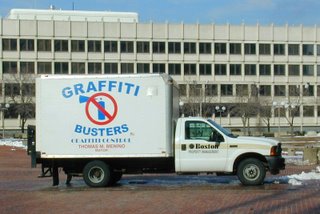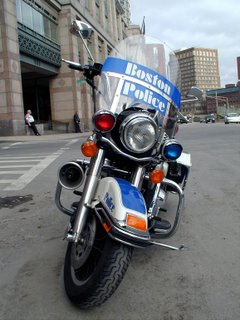The TTABlog Fraud Collection: Is There a Fraud in Your Future?
Ok, so it's a collection not exactly worthy of a Time-Life infomercial, but I thought it would be useful to gather the Board's fraud decisions during the past 18 months (i.e., since the birth of the TTABlog). In the seven final decisions summarized below, the Board found fraud in three cases (one citable), declined to find fraud in two others (one citable), granted a motion to add fraud counterclaims based on evidence uncovered during an opposer's testimony period (citable), and distinguished between a fraud claim and one for nonuse (citable).

In my December 2004 article entitled "The Board's-Eye View: Six Potential Pitfalls in Trademark Prosecution," I reviewed six then-recent fraud decisions and came to the following conclusion:
"these six TTAB decisions underscore a fundamental principle: when an applicant makes a verified or sworn statement regarding use of its mark, that statement had better be completely true. False statements will not be readily excused. Lack of legal advice, misunderstanding of the statutory requirements, language difficulties, and/or clever wordplay will not provide a defense to a charge of fraud. Nor will the (wholly expected) assertion of lack of fraudulent intent."
That analysis continues to hold true. If I had a client with a potentially troublesome application or registration, I would bite the bullet and file a new application right away. I don't think the Board's recent fraud rulings give any reason for optimism that a problematical application (or registration), even if amended immediately, could survive a subsequent fraud challenge.
Fraud Claims Sustained:
Standard Knitting, Ltd. v. Toyota Jidosha Kabushiki Kaisha, 77 USPQ2d 1917 (TTAB 2006). In this citable decision, the Board cancelled three registrations of Opposer Standard Knitting, finding that false statements made to the PTO regarding use of the marks on certain clothing items constituted fraud. The registrations listed various items of men'’s, ladies'’ and children'’s clothing, but discovery revealed that, when Standard filed its two underlying use-based applications and when it filed its Statement of Use in the third application, it had not used the marks on "“at a minimum, most, if not all, of the items of children'’s clothing identified in each of the three registrations."” Standard claimed that the false statements were the result of honest mistake and misunderstanding rather than fraudulent intent. The Board ruled, however, that "[i] was not reasonable for Mr. Groumoutis to believe that if the items of clothing were ever made or sold, even if the last sale took place 20 years ago, it would support a claim that the mark 'is' in use on the goods." (TTABlogged here).
Physicians Formula Cosmetics, Inc. v. Cosmed, Inc., Cancellation No. 92040782 (March 11, 2005) [not citable]. The Board invalidated Physicians' registration on the ground of fraud in the filing of a Statement of Use. In its SOU, Registrant "“affirmed to the PTO that [it] had used the involved mark on all of the listed goods. . . ."” During discovery, however, Cosmed'’s counsel stipulated that Cosmed had never used the PHYSICIANS COMPLEX mark on several of the cosmetics products listed in its registration. Cosmed'’s president testified that his brother, as Treasurer, signed the Statement of Use: "“It was that we intended to use it."” Petitioner amended its Section 2(d) petition for cancellation to add a claim of fraud, and then succeeded on its partial summary judgment motion on that added ground. The Board found that Petitioner had carried its burden to prove its allegation of fraud "'‘to the hilt'’ with clear and convincing evidence."” "“Specifically, the stipulation regarding respondent'’s non-use of certain goods [sic] identified in the registration, combined with the above-quoted testimony of respondent'’s president, establish that when respondent signed the statement of use, respondent knew, or should have known, that the averment regarding use of the mark on all of the goods identified therein was false."” (TTABlogged here).
J.E.M. Int'l, Inc. v. Happy Rompers Creation Corp., 74 USPQ2d 1526 (TTAB 2005) [not citable]. The Board granted Petitioner'’s summary judgment motion cancelling a registration for the mark IT'’S A GIRL THING on the ground of fraud. The registration listed some 150 clothing items, and in its Statement of Use, Happy Rompers claimed use on all the goods. However, after the petition for cancellation was filed and discovery commenced, Happy Rompers changed its tune: it moved to amend the registration to delete more than 100 items. In light of the Board'’s ruling, however, that motion became moot. J.E.M. moved for summary judgment on the ground of fraud, relying on Happy Rompers'’ discovery responses showing that Rompers was not using, and had never used, its mark in connection with the subsequently-disavowed clothing items. Happy Rompers, not surprisingly, declared that it did not intend to defraud the PTO. The Board, however, agreed with J.E.M. that Medinol Ltd. v. Neuro Vasx Inc., 67 USPQ2d 1205 (TTAB 2003) is applicable here: "“Respondent'’s knowledge that its mark was not in use on about 100 of the approximately 150 identified items -- or ‘its reckless disregard for the truth -- is all that is required to establish intent to commit fraud in the procurement of a registration."” (TTABlogged here).
Fraud Claim(s) Dismissed:
Maids to Order of Ohio, Inc. v. Maid-to-Order, Inc., 78 USPQ2d 1899 (TTAB 2006). In this citable decision, the Board rejected Petitioner's fraud claim and granted Respondent'’s 2(d) counterclaim for cancellation. Petitioner contended that Respondent had committed fraud on the PTO by falsely claiming use of its mark MAID TO ORDER in interstate commerce. But the Board concluded that Petitioner failed to meet its "“heavy burden" to prove fraud: "“It was not unreasonable for Ms. Kern, as a layperson, to believe that [Respondent'’s] activities constituted use of the MAID TO ORDER mark in interstate commerce. *** This belief is sufficient to negate an inference of fraud upon the USPTO in obtaining and maintaining the registration."” [In other words, the question of whether the mark was used in interstate commerce leaves room for error; the question of whether a mark has been used at all, however, is black-and-white.] Respondent brought its own fraud claim, but that too was a dud. It maintained that when Petitioner Ohio filed the application that resulted in its registration of the MAIDS TO ORDER mark, it knew of Respondent's use and registration and failed to disclose it to the PTO. But Professor McCarthy has observed that the application oath "is phrased in terms of a subjective belief, such that it is difficult, if not impossible, to prove objective falsity and fraud so long as the affiant or declarant has an honestly held, good faith belief." Here, Petitioner Ohio's President did not believe that Respondent had prior rights in the MAID TO ORDER mark. The Board therefore concluded that Respondent had failed to prove fraud. (TTABlogged here).
Hasbro, Inc. v. Goldman, Opposition No. 91156238 (August 29, 2005) [not citable]. The Board granted Applicant Goldman'’s counterclaim for cancellation on the ground of abandonment and dismissed this Section 2(d) opposition to registration of the mark COTTON CANDY CLOUD CASTLE for dolls, dollhouses, and other toys. Goldman claimed that Hasbro committed fraud when it filed its combined Section 8 and 15 declaration for its COTTON CANDY registration in September of 1989, first because it averred that the mark had been in use for five consecutive years. However, the person who signed the combined declaration did not testify, and there was testimony that COTTON CANDY was used in the late 1980s as a "cutie mark" on another toy pony known primarily by another name. Therefore the Board found the evidence too ambiguous to permit a finding of fraud. Goldman also claimed fraud because the combined declaration stated that the mark was in current use, but the specimen did not show "current" use. The Board, however (apparently unwilling to saddle Hasbro with a fraud charge), pointed out that the acceptability of a specimen is not a separate ground for cancellation, and it declined to find fraud on that basis. (TTABlogged here).

Fraud Claim Added:
Turbo Sportswear, Inc. v. Marmot Mountain Ltd., 77 USPQ2d 1152 (TTAB 2005). In this citable decision , the Board granted Marmot's motion to add counterclaims seeking cancellation of five asserted registrations on the ground of fraud. Although the case was already in Opposer Turbo'’s testimony period, the Board found the motion timely because it was based on evidence that was not previously available. Marmot asserted that it learned during the testimony deposition of Opposer'’s vice-president that Turbo'’s mark was never used on various goods included in the five registrations. Turbo Opposer contended that the motion was untimely because Applicant "“was aware of what goods the marks were being used on when it received opposer'’s responses to its interrogatories in 2003."” The Board determined that the motion was brought promptly after the grounds therefor were learned, and it concluded that the interrogatory answers "“dealt only with whether the marks were in use on the goods at the time the responses were provided."” The Board issued an Order re-opening discovery and re-setting trial dates. (TTABlogged here).
Fraud/Nonuse Distinguished:
Grand Canyon West Ranch, LLC v. Hualapai Tribe, 78 USPQ2d 1696 (TTAB 2006). In this citable decision, the Board granted in part Opposer Grand Canyon's motion for summary judgment on the ground of nonuse of the Tribe'’s mark for some of its services. Because Opposer did not allege fraud, however, the Board did not reach the issue of whether Applicant'’s inclusion of the "“extra services" in its use-based application constituted fraud (which would render the entire application void ab initio). Grand Canyon moved for summary judgment on its nonuse claim, asserting that the application as a whole must fail. The Board, however, disagreed: "“The case law is clear that holding an application to be void is an appropriate remedy when the pleaded ground either is fraud, or that the applicant has not used the applied-for mark on any of the goods or services identified in the application prior to the filing of the application."” Here, Grand Canyon did not plead fraud as a ground for opposition. The Board held that "“as long as the mark was used on some of the identified goods or services as of the filing of the application, the application is not void in its entirety."” The Board then found appropriate Applicant'’s proposed amendment to delete the "“extra"” services. (TTABlogged here).
Text and Photographs Copyright John L. Welch 2005-6.




0 Comments:
Post a Comment
<< Home